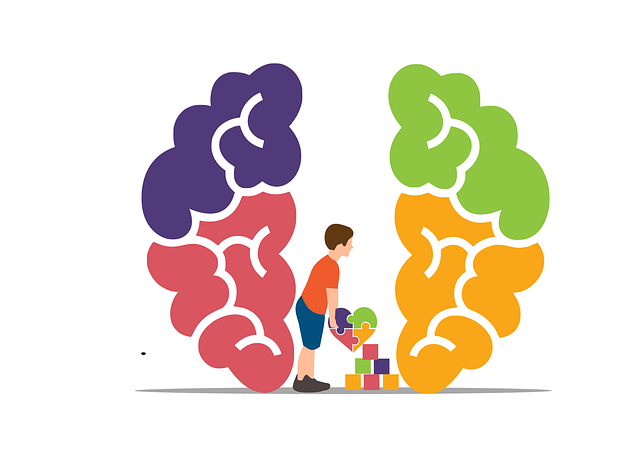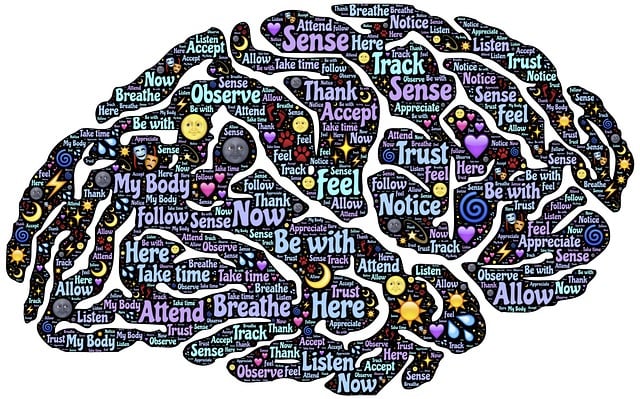Longmont International Adoptions Therapy prioritizes creating safe, supportive group environments for effective mental wellness facilitation. Through clear rules, active listening, empathy, and promoting open communication, facilitators foster trust and connection among participants facing similar challenges. This secure setting enables individuals to explore emotions, build resilience, and gain personalized coping strategies for their mental wellness journeys, enhancing overall therapeutic outcomes.
Mental wellness group facilitation plays a pivotal role in fostering recovery, building resilience, and cultivating supportive communities. This article explores proven techniques for leading effective mental health groups, focusing on creating safe spaces at Longmont International Adoptions Therapy. We’ll delve into strategies such as establishing trust through open communication, setting clear expectations, and using icebreakers to encourage participation. Additionally, we’ll discuss active listening, assertive communication skills, group dynamics, and managing conflicts to ensure every member feels supported and heard.
- Establishing a Safe and Supportive Environment
- – Creating trust and fostering openness
- – Setting ground rules and expectations
Establishing a Safe and Supportive Environment

Creating a safe and supportive atmosphere is paramount for effective mental wellness group facilitation. At Longmont International Adoptions Therapy, we understand that fostering such an environment can significantly impact the outcome of group therapy sessions. A secure setting encourages participants to open up, share their experiences, and develop meaningful connections with peers facing similar challenges. This sense of belongingness and mutual understanding is a cornerstone of successful group therapy, enabling individuals to navigate complex emotions and build resilience together.
Our Community Outreach Program Implementation leverages the power of collective support, bringing diverse backgrounds together while promoting Mental Health Awareness. By cultivating an atmosphere of acceptance and empathy, we ensure that every individual feels valued and heard. This technique not only enhances the therapeutic experience but also encourages positive thinking and personal growth, ultimately equipping participants with valuable coping strategies for their mental wellness journey.
– Creating trust and fostering openness

Building a safe and supportive environment is paramount for effective group facilitation, especially when addressing sensitive topics like mental wellness. Group members must feel comfortable sharing their experiences and perspectives without fear of judgment or ridicule. At Longmont International Adoptions Therapy, we understand that creating trust and fostering openness are foundational elements in any therapeutic setting. Facilitators play a crucial role in cultivating this atmosphere by actively listening, demonstrating empathy, and ensuring every individual’s voice is heard.
Using techniques like normalizing diverse experiences and promoting active participation can help break down barriers and encourage honest communication. This not only enhances group cohesion but also enables members to develop deeper understandings of themselves and one another. By creating a safe space, facilitators enable participants to explore and implement effective stress reduction methods and anxiety relief strategies tailored to their unique needs, ultimately contributing to their overall mental wellness coaching programs development.
– Setting ground rules and expectations

Creating a safe and supportive environment is paramount when facilitating mental wellness groups at Longmont International Adoptions Therapy. A key step in this process involves setting clear ground rules and expectations. These should be established at the beginning to ensure every participant feels heard, respected, and understood. Facilitators can encourage open communication by outlining the group’s purpose, privacy guidelines, confidentiality practices, and the importance of active participation. By doing so, members are empowered to share their experiences without fear of judgment or repercussions.
Additionally, setting expectations around behavior fosters a productive atmosphere. This includes guiding participants on how to respectfully disagree, handle conflicts, and support one another through emotional healing processes. Incorporating self-care routines as part of these discussions can also be beneficial, as it encourages members to prioritize their well-being, especially when navigating challenging topics. Such practices complement Stress Management Workshops Organization initiatives, promoting a holistic approach to mental health improvement.
Group facilitation for mental wellness, as demonstrated by Longmont International Adoptions Therapy, hinges on creating a safe, supportive environment. By fostering trust, encouraging openness, and establishing clear ground rules, facilitators can enhance the therapeutic experience. These techniques not only promote active participation but also ensure every member feels heard and valued, ultimately revolutionizing group therapy sessions.














